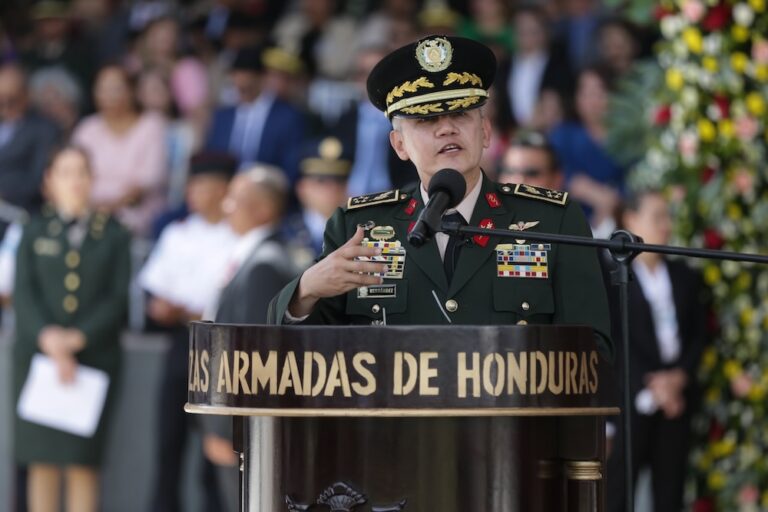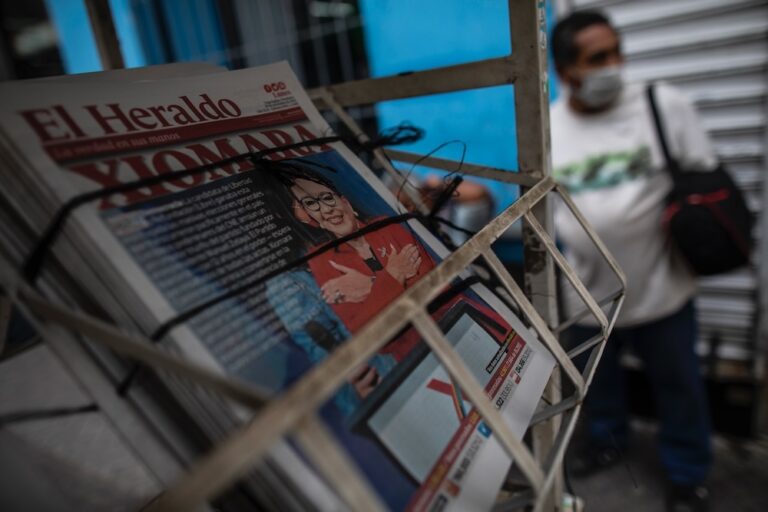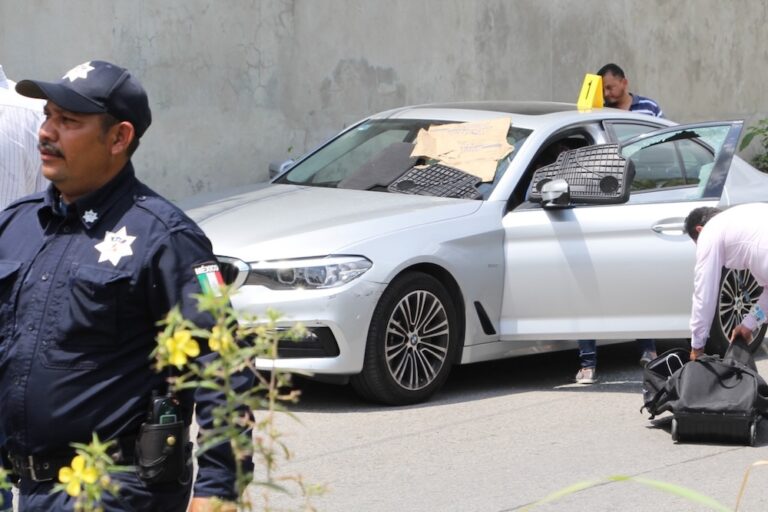Gonzalo Fernando Marroquín presented a review of the advances and setbacks faced by the press in 2010.
(IAPA/IFEX) – Miami, December 29, 2010 – Gonzalo Fernando Marroquín, president of the Inter American Press Association (IAPA) and editor of the Guatemala City, Guatemala, newspaper Prensa Libre, presented a review of the advances and setbacks faced by the press in 2010 and outlined the coming year’s agenda for freedom of the press and expression in the Western Hemisphere.
The following is the full text of his year-end message:
2010 was a year of great contrasts, requiring intense efforts on our part in defense of press freedom and free speech – not because we consider it to be our organization’s mission in benefit of news media and journalists, but rather because it is the essential right of every citizen to live a better quality of life within society. This principle will guide us during 2011’s “Year of Freedom of Expression”.
We end this year with grave concerns, particularly with regard to legal reforms in Venezuela that restrict the media and put limits on Internet usage, as well as the intent of some United States’ lawmakers to curb freedom of expression on the Internet in reprisal for the Wikileaks publication of confidential diplomatic messages.
Cuba continued to stand out for its dogged censorship and for exiling 18 freed independent journalists while eight others still await release from prison. In Mexico, organized crime was responsible for the murder of 11 journalists and a dozen attacks on media headquarters, while the Venezuelan government shut down five cable TV operations and 24 radio stations. The administrations of Argentina, Bolivia, Ecuador, Honduras and Nicaragua, as well as Venezuela, continued to buy up media outlets with public funds, integrating them into their propaganda machines.
In Argentina, Ecuador and Nicaragua the governments launched public campaigns to discredit the press, discriminated in the distribution of official advertising, applied economic sanctions or interfered in media operations by promoting labor union disputes.
A number of journalists were taken to trial and many publications were subjected to censorship and prior censorship: in Brazil for exposing official corruption, in El Salvador for publishing photos of young delinquents, in Venezuela for exposing the mismanagement of morgues, in Colombia and Peru for reporting on wiretapping; and for the alleged libel of public officials in Panama, Paraguay and Uruguay.
A legal storm was also unleashed against press freedom. Just as Venezuela in past years used the excuse of child-protection to enact anti-press laws, a similar strategy was used to back bills in Colombia and Peru, while in Bolivia a law claiming to combat racism and bad practices was adopted.
But of all these hurdles, none is of as great a concern as the crimes against journalists, a condition that causes in us the same frustration as the public in general feels when faced with the lack of safety and the violence of organized crime. This year 23 reporters have been murdered, 11 of them in Mexico, nine in Honduras, two in Brazil and one in Colombia.
A number of achievements, however, encourage us keep going – the fact that eight criminals were convicted and 16 more are on trial; the creation of a special jurisdiction in Peru to try journalists’ murderers; the establishment in Mexico of a special prosecutor’s office to handle these crimes and the promise to enact a law there making them federal offenses; and the increased statute of limitations – to 30 years – in these cases in Colombia.
Violence against reporters is an assault upon the whole of society and, as such, requires a universal response. That is why we have created the campaign we call “Lend Your Voice”, a song contest for members of the public to call for greater justice and an end to impunity.
Against this background and in light of the IAPA’s decades-long battle on this front, we will redouble efforts during the upcoming “Year of Freedom of Expression”, so that in every corner of the Americas the primary principle of the Declaration of Chapultepec, that “no people or society can be free without freedom of expression and of the press”, is reinforced.
This objective is what inspires us to call upon all peoples of the Western Hemisphere to join this battle on behalf of freedom of expression beginning in 2011.


